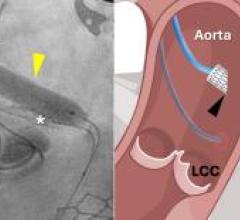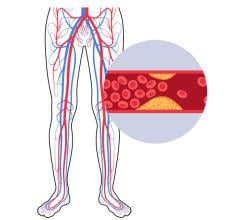
June 21, 2022 — Renibus Therapeutics (“Renibus”), a clinical-stage biotech company focusing on the prevention and treatment of cardio-renal diseases, today announced that its lead clinical candidate, RBT-1, met the primary endpoint of increasing the expression of biomarkers of cytoprotective preconditioning in a pre-specified interim Phase 2 data analysis. While the trial was not powered to demonstrate statistical significance beyond its primary endpoint, RBT-1 did achieve statistical significance in multiple, pre-specified clinically relevant endpoints, including a reduction in ICU days, ventilator days, and 30-day re-admission rates. The positive data supports RBT-1’s potential to impact clinical outcomes following cardiothoracic surgery. The Phase 2 randomized, multi-center placebo-controlled trial evaluated the effect of RBT-1 in patients undergoing coronary artery bypass graft (CABG) and/or cardiac valve surgery. The interim data was obtained from 60 patients who were randomized to receive active drug (2 dose groups) or placebo.
Summary of Interim Data
The pre-specified interim analysis of Phase 2 RBT-1 data when compared to placebo supported:
- A statistically significant (p value <0.0001) increase in biomarkers of cytoprotective preconditioning, which achieved the trial’s primary endpoint;
- A statistically significant (p value <0.05) reduction in days in the ICU and days on ventilator among patients receiving active treatment;
- A clinically meaningful reduction in rates of AKI (-52%) and MAKE30 (-78%);
- An overall reduction in length of hospital stay by 2 days;
- A statistically significant (p value <0.003) reduction in 30-day hospital readmission rates;
- A generally well-tolerated safety profile.
“The administration of RBT-1 to patients undergoing cardiothoracic surgery has the potential to improve patient outcomes and address a critical unmet patient need,” said Dr. Bhupinder Singh, Chief Medical Officer of Renibus and Clinical Professor at the University of California, Irvine School of Medicine. “The interim analysis suggested positive patient benefits in clinically relevant outcomes after administration of RBT-1 when compared to placebo.”
“We are highly encouraged that RBT-1 met the primary endpoint and demonstrated its potential to reduce the risk of postoperative complications following cardiothoracic surgery in the interim data analysis from the Phase 2 trial,” said Renibus’ Chairman and CEO, Frank Stonebanks. “We look forward to continuing the development of RBT-1 and preparing for its next set of milestones.”
Based on this positive interim analysis, Renibus requested and was granted an End of Phase 2 meeting to discuss the Company’s plans for the initiation of a pivotal Phase 3 clinical trial later this year.
Phase 2 Clinical Trial Design
The primary objective of the Phase 2 randomized, multi-center, placebo-controlled trial was to evaluate the effect of RBT-1 (stannous protoporphyrin and iron sucrose) on biomarkers of cytoprotective preconditioning as well as clinical outcomes in patients undergoing CABG and/or cardiac valve surgery. The trial includes multiple sites in Australia, Canada and the United States.
For more information: www.renibus.com


 January 15, 2026
January 15, 2026 









